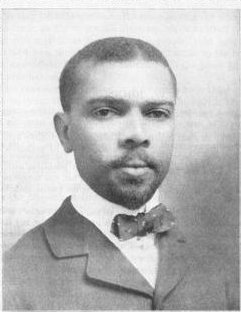The “Black National Anthem” First Performed on This Date in 1900
Share
Explore Our Galleries
Breaking News!
Today's news and culture by Black and other reporters in the Black and mainstream media.
Ways to Support ABHM?
From Wikipedia


Johnson is remembered best for his leadership within the NAACP, as well as for his writing, which includes novels, poems, and collections of folklore and folksongs.
Aged around 30 at the time of this photo, James W. Johnson had already written Lift Ev’ry Voice and Sing and been admitted to the Florida bar.
“Lift Every Voice and Sing” — sometimes referred to as “The Negro National Hymn” or “The African-American National Anthem”—is a song written as a poem by James Weldon Johnson (1871–1938) in 1899 and set to music by his brother John Rosamond Johnson (1873–1954) in 1900.
“Lift Every Voice and Sing” was publicly performed first as a poem as part of a celebration of Lincoln’s Birthday on February 12, 1900, by 500 school children at the segregated Stanton School. Its principal, James Weldon Johnson, wrote the words to introduce its honored guest Booker T. Washington. The poem was later set to music by Johnson’s brother John in 1905.
Read more about the multitalented and prolific brothers, James Weldon Johnson and J.Rosamond Johnson.
Read more Breaking News here.









Comments Are Welcome
Note: We moderate submissions in order to create a space for meaningful dialogue, a space where museum visitors – adults and youth –– can exchange informed, thoughtful, and relevant comments that add value to our exhibits.
Racial slurs, personal attacks, obscenity, profanity, and SHOUTING do not meet the above standard. Such comments are posted in the exhibit Hateful Speech. Commercial promotions, impersonations, and incoherent comments likewise fail to meet our goals, so will not be posted. Submissions longer than 120 words will be shortened.
See our full Comments Policy here.